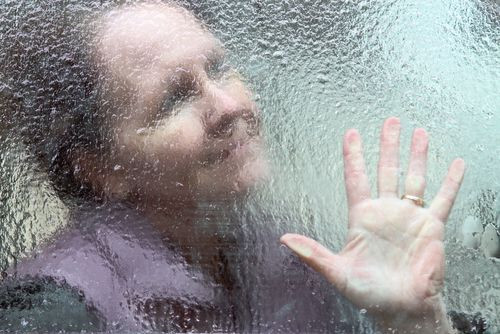Dementia Patients Who Want To Remain In Their Homes Require More Support … And So Do Their Caregivers!

Although the extreme cases of Alzheimer’s are most often discussed, many people have only mild or moderate forms of dementia and are cared for at home by their family members and friends. Now, research from Johns Hopkins suggests that most people with dementia who live at home have multiple unmet health and welfare needs, which could jeopardize their ability to remain in their homes. That said, the researchers also believe basic medical support services, routine assessments, as well as simple fixes, such as installing grab bars in bathrooms, tacking down carpets, and locking away guns, would help many people avoid a nursing home or assisted living destination. "Currently, we can't cure their dementia, but we know there are things that, if done systematically, can keep people with dementia at home longer," Betty S. Black, Ph.D., an associate professor of psychiatry and behavioral sciences at the Johns Hopkins University School of Medicine, stated in a press release.
What Are Their Needs?
For the new study, published online in the Journal of the American Geriatrics Society, Black and her research team performed in-home assessments and surveys of 254 people with dementia who were living at home in Baltimore, Md. Next, they interviewed the 246 informal, non-professional caregivers of these patients. The team discovered that nearly everyone — 99 percent of people with dementia and 97 percent of their caregivers — had one or more unmet needs in the areas of health, safety, activities, medication management, legal issues (such as estate planning), or assistance with activities of daily living. Interestingly, unmet needs were significantly greater in those with higher cognitive function; Black believes this is most likely the case because those with more severe dementia did not understand they were not being closely monitored.
Specifically, one-third of all patients surveyed still required a dementia evaluation or diagnosis; more than half had inadequate meaningful activities at a senior center or at home; and 90 percent had safety-related concerns. Most disheartening to the researchers was their discovery that more than 60 percent of the patients needed medical care for conditions other than their dementia. “This high rate of unmet medical care need raises the possibility that earlier care could prevent hospitalizations, improve quality of life, and lower the costs of care at the same time," Black stated.
Caregivers, Too
An estimated 5.4 million people in the U.S. have Alzheimer's disease or other types of dementia, most cases being mild to moderate. Alzheimer's disease, the most common cause of dementia, affects parts of the brain that control memory, language, reasoning, as well as social behavior. Roughly 70 percent are cared for in the community by family members and friends. In the Johns Hopkins survey, the researchers found that individuals with lower income, African-Americans, individuals more independent in their basic daily living activities, such as being able to feed and clothe themselves, and those with more symptoms of depression had higher levels of unmet needs. Previous research has shown that greater unmet needs predicts a nursing home placement for dementia patients.
And another well-known factor that foreshadows a nursing home admission is caregiver stress. By 2030, the number of Americans over 65 is estimated to be 71.5 million — more than double current estimates — and naturally this would require more caregivers. Most caregivers in the current study were found to have multiple unmet needs, including lack of access to resources, to referrals for support services, and to education about caring for their loved one. Generally, caregivers with less education and more symptoms of depression had significantly more unmet needs. Black's study suggests that identifying and treating depression in dementia patients as well as their caregivers might enable them to address their unmet needs.
Black noted that Medicare doesn’t typically cover needs assessments and preventive safety measures: "If they did, it may be far more cost-effective than long-term nursing home care."
Source: Black BS, QM Samus, D Johnston, et al. Unmet Needs of Community-Residing Persons with Dementia and Their Informal Caregivers: Findings from the Maximizing Independence at Home Study. Journal of the American Geriatrics Society. 2013.



























